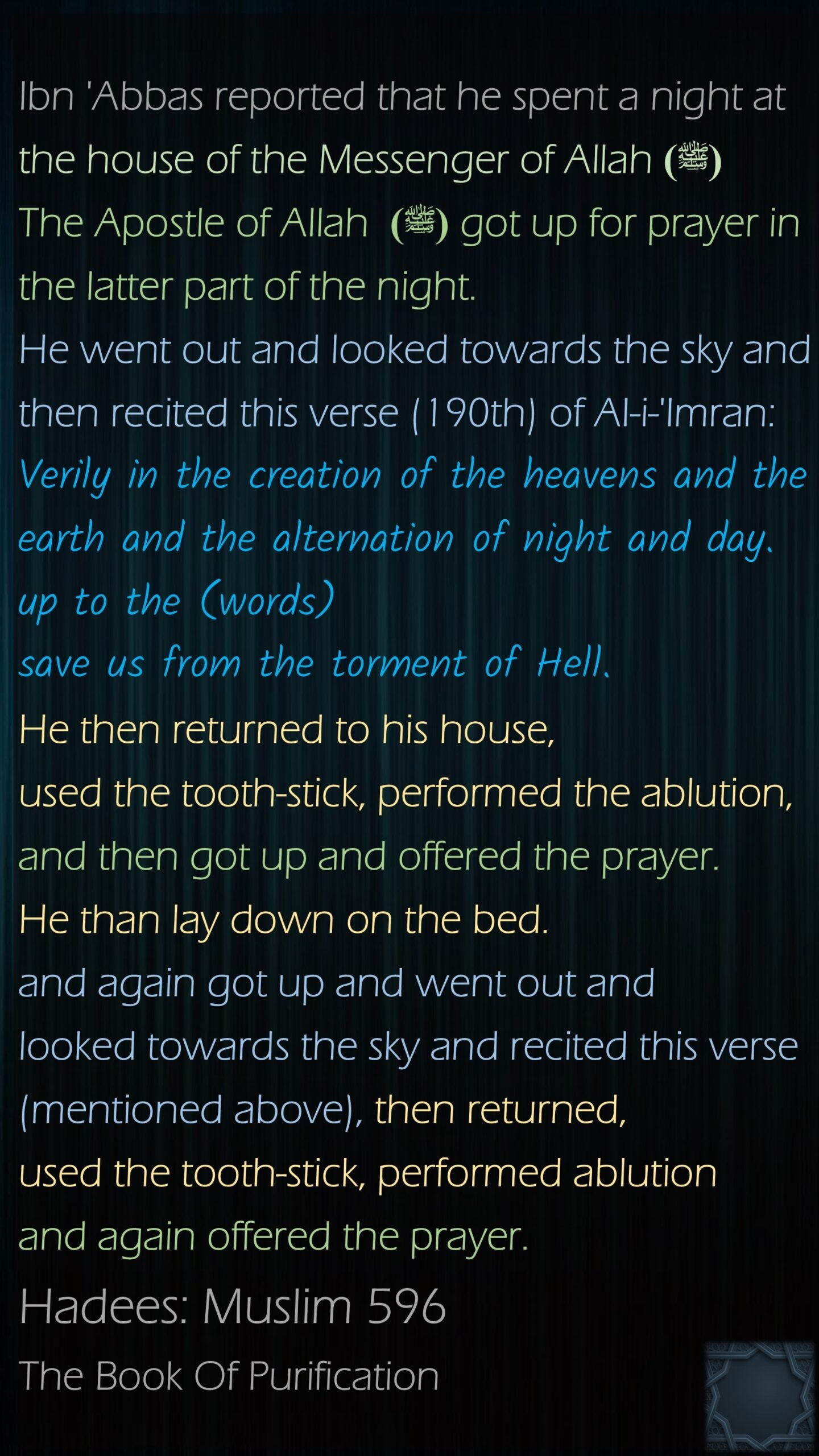Skip to Content
Tag Archives: sitting
- Home -
- Posts tagged "sitting"
13
Feb, 2025
Hadees, Islam
002, 003, 164, 190, 596, Allah, alternation, benefit, cloud, creation, creature, daily, day, drift, earth, fajr, fire, Glory, heavens, humanity, inspirations, islam, islamic, lie, lying, Muhammad, Muslim, night, people, ponder, purpose, rain, reason, remember, sail, scatter, sea, shift, ship, Sign, sit, sitting, skt, stand, standing, supplication, Tahajjud, think, torment, vegitation, wind
17
Nov, 2024
Islam, Quran
004, 103, Allah, An-Nisa, appointed time, ayat, believer, daily, disbeliever, duty, establish, fight, inspirations, islam, islamic, lying down, perform, prayer, quran, remember, sitting, standing, Surah
25
Mar, 2023
Islam, Quran
190, 191, 192, 193, 194, Allah, alone, alternation, ayat, belief, creation, daily, day, die, disgrace, earth, fail, fire, forgive, Glory, grant, heavens, helper, inspirations, islam, islamic, judgement, lying, never, night, no, pray, proclaim, promise, protect, purpose, quran, reflect, remember, reson, shame, signs, sitting, standing, Surah, torment, true, virtuous, wrongdoer



